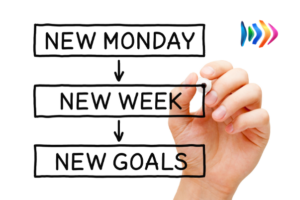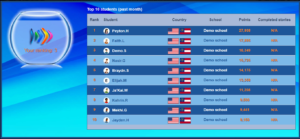
26 Jun Getting Real Results in Virtual Summer School
This year, summer schools and reading camps have morphed into virtual learning sessions. With just a few short weeks to make an impact, summer programs present a unique set of conditions for teachers. Learning at a distance adds even more factors that need to be considered when implementing a summer program virtually. Effective online instruction that is engaging for students, easy to access and simple to use can make all of the difference, especially when time is in short supply.
Here are a few tips on getting results in (virtual) summer school:
1. Set clear daily or weekly goals: Most summer schools and camps are 2-4 weeks in length, so there’s very little time to waste. Tell students what they will be learning each week and why. Communicate how their progress will be monitored (frequency, metrics, feedback) and what milestones are going to be measured by you each week.
2. Do something different: Many students stopped “regular” school back in March and have been distance learning for a while. Finding a program that is different from what they’ve been doing will stimulate new interest for students. Engaging students with multimedia content, lessons that can be completed in short periods, and high-interest topics will go a long way to keeping students focused and on task.
3. Make students accountable: Part of the weekly evaluation is getting students to self-monitor and evaluate their performance. In BrightFish Reading, for example, students use the “story tracker” to check their scores in different skill areas and monitor their growth. Teachers can also assign weekly progress sheets where students rate their work and record reflections. Simple tracking mechanisms like leader boards (shown below) and visible progress bars motivate students to achieve their goals.
4. Let them know you’re watching: In short summer school sessions, it’s important to closely monitor how much time students are working and what’s getting done. Real-time metrics for time on task and progress are essential. Once you set the weekly or daily goals, give students specific feedback on their progress data. Offer clear direction about what is going well and any changes you expect to see before the week’s end.
5. Reward and celebrate: Motivating students to keep up the pace can be challenging from a distance. Here are a few ideas to try with your classes:
- Celebrate the weekly top scorer for time on task, lessons completed, scores, etc.
- Use weekly video calls to acknowledge top scorers and most-improved students.
- Keep a tally of points and give extra credit for achieving milestones in different categories.
- Write a note to the student’s parents and send PDF certificates for completed work.
- Create weekly prizes, such as coupons to use in local bookstores, food stores or online.
- Hold a raffle for a mystery prize at the end of the session that only top scorers can enter.
6. Don’t be afraid to ask for help: Reports and self-help tools are great, but the only “easy button” is having a live person on the other end of the phone, chat or email to be your virtual teaching assistant.
Get BrightFish Reading for summer school:
BrightFish-Summerschool





No Comments